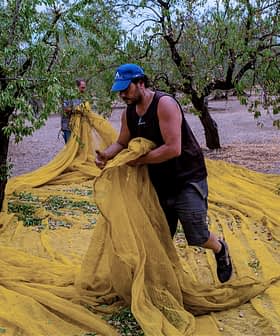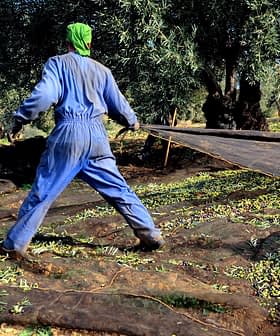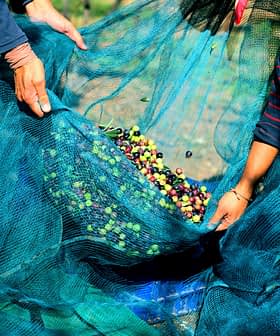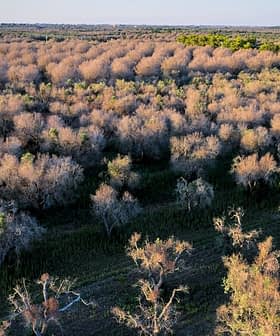The Corpo Forestale called a press conference today to review ongoing investigations. Besides olive oil, Gorgonzola and a so-called truffle spread were discussed in some detail. The Corpo Forestale, or forestry department, is charged with protecting the environment. Forests as well as cultivated areas are overseen by the agency and olive oil falls under the NAF subgroup. NAF, even if awkwardly translated, stands for Nucleus of Agrifood and Forestry.
The packed room was full of journalists, and there was some disappointment when it was announced that the new Minister of Agriculture, Saverio Romano could not attend (Giancarlo Galan has moved on to being Minister of Culture). On the table at the head of the room, where the speakers were seated, were items that had been unmasked as counterfeit or fraudulent by the Corpo Forestale.
There were bottles of wines, jars of jam, and olive oil. One of the bottles of olive oil had its labels blacked out with magic marker, which of course made it all the more conspicuous. Even with the Carapelli name masked over, one could tell it was the Grupo SOS brand. After the conference I asked someone from the ministry why the name was blacked out, and he replied it was because the company is very powerful.
Most of the speakers touched on the fact that Italy is very rich in geographically indicated foods. With 221 products, it has more than any other country in Europe. Cesare Patrone, head of the Corpo Forestale, said that “because Italian foods are the most prized in the world, it’s clear we also have primacy in falsified foods, which are sold annually for more than 50 million euros.” To combat fraud, the Corpo Forestale in the past year stepped up their activities with more investigations, and with the number of criminal cases reaching 102, well over the 75 of 2009.

They were also puzzled by the prominent “Low Acidity” label on the bottle. Their hypothesis is that the oil was deodorized. During his talk, De Franceschi showed a slide of an asphalt yard in Spain with a mountain of olives and at the base there was oil pooling from the huge weight. Deodorized oil is mostly made from overly ripe olives, or olives that have been improperly handled. For higher quality olive oil, not much time should elapse between harvest and extraction, and the olives should be treated gingerly.
While the Corpo thought it should be sequestered, the Florentine magistrate did not agree. The Florence court is investigating, and three executives of Carapelli have been indicted. On July 4th the court will convene again to reveal what scientific analysis had to say about the confiscated oil.
This is a breaking news story. Check back for updates.








